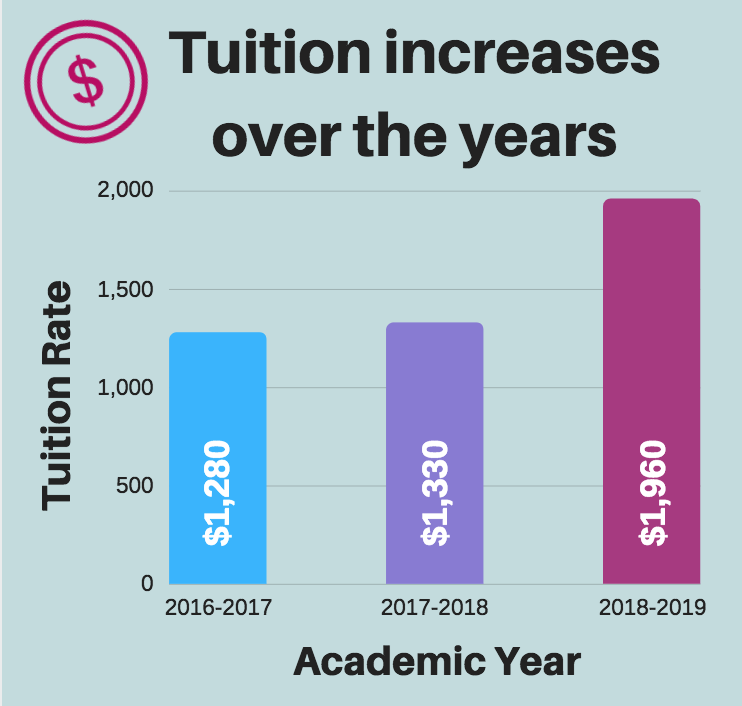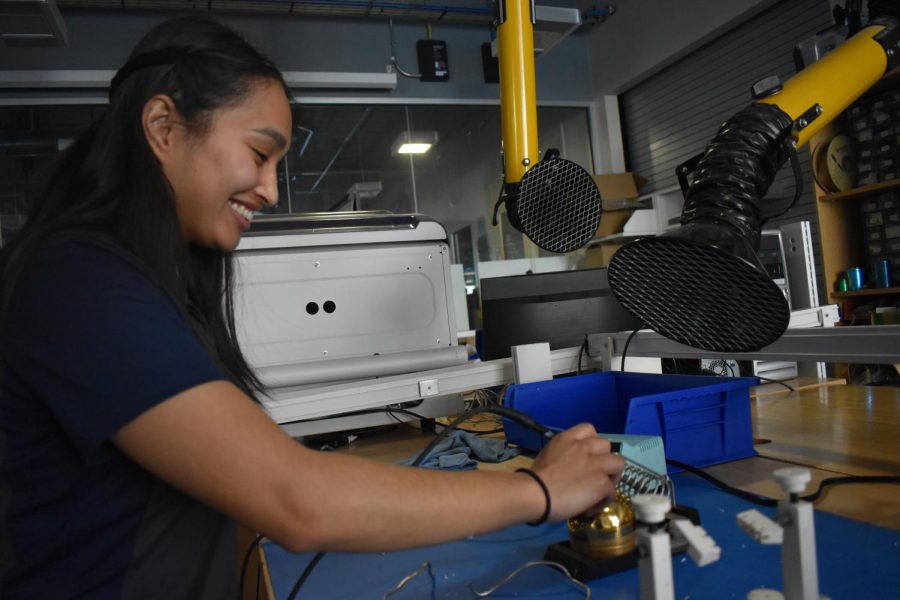Forthcoming financial challenges to higher education require the university to practice increased transparency with students and their families.
University leaders need to have open conversations about what students and families are expected to pay, what university programs and projects it invests in and decisions related to its cost-management review process. University President Michael Lovell discussed the review process in his recent letter to faculty and staff about staff layoffs and vacancies.
While students interact with teachers and faculty on a daily basis, they may feel disconnected from the administrative team in charge of their schools. This disconnect can become more apparent at higher-level educational institutions. Marquette University students and families are not exempt from this norm.
Students attending the university are often unaware of new programs or infrastructural changes on campus until they happen, leaving them with no voice or personal investment in the university’s decisions.
Although the university was transparent about recent cuts and should be commended for being honest about them, it needs to extend that transparency to other engagements with the community. A mere email after decisions are made are implemented is insufficient.
In an email, Lovell said he wants to assure the campus community that he is committed to communicating about near-term university changes as the university implements them. Marquette families and students cannot be treated as an afterthought, only being notified of where their money goes after the project, program or cost management strategy has already been finished.
These issues cannot continue to be discussed primarily in the context of university statements about the higher education industry. The university should plan open campus discussions about these topics. Marquette families and students should not be kept in the dark about how much they are expected to pay from year to year, or which university staff and resources may be slashed.
A large number of Marquette families would not be able to send their children to Marquette without receiving financial aid. If the university continues to raise tuition at the current rate, it is not keeping students’ and families’ interests in mind. This is a fact Lovell acknowledged in an August letter to faculty and staff.
In the future, prospective students may choose other universities at which to pursue their college careers, such as private universities with tuition caps, guaranteeing students and families know what tuition will cost upfront for all four years.
For example, Drake University in Des Moines, Iowa, is transparent about its “fixed tuition” cost. According to the website, “(the tuition) will not go up during a student’s time at Drake.” Drake University is straightforward about what families and students are expected to pay — Marquette University should consider holding itself to the same standard.
According to the Office of Institutional Research and Analysis, the Class of 2023 consists of 225 fewer students than last year’s freshman class. With fewer students feeding into the university, costs will rise, although the university is offsetting these costs with layoffs to staff and organizational restructuring.
Universities across the nation are experiencing similar enrollment decreases. In general, post-secondary enrollment decreased 1.7% from last year, according to a study cited by U.S. News. This year’s decrease marks the straight eighth year of decreased college enrollment.
In an August letter sent to faculty and staff, Lovell also said the number of college-age students is expected to decline by 15 to 25% beginning in 2026. Lovell referenced this statistic from the book “Demographics and the Demand for Higher Education” by Nathan Grawe.
With decreasing enrollment, the university needs to be open about where tuition money goes. It is difficult to understand Marquette’s priorities when looking at what is happening around campus. Although the university is following the Master Plan, a comprehensive plan for the university’s capital projects for the next 10 to 20 years, it is not focusing on enhancing the programs and infrastructure already on campus.
Rather than improving the college experience for students already paying the university —
like by fixing damages in residence halls or funding the theater and language programs —
Marquette is too occupied funding projects that will not be appreciated or used for numerous classes to come, like tearing down McCormick Hall and building a new residence hall.
Although the university would be vulnerable to the public if it were to be transparent about the budget cuts and changes it is making, Marquette has a moral and ethical responsibility to communicate honestly to its families and students.
Families and students need to hold the university accountable. They need to hold the university to concrete promises. They cannot simply recognize and accept the decisions the university makes on their behalf.
In order to trust the choices of university leaders, the community must first be informed about processes and decisions.






